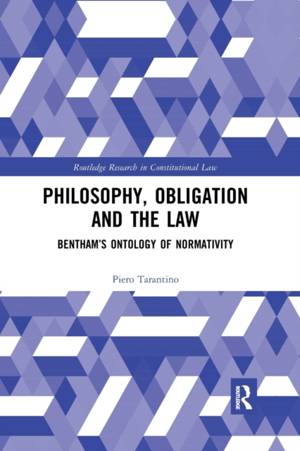
- Retrait gratuit dans votre magasin Club
- 7.000.000 titres dans notre catalogue
- Payer en toute sécurité
- Toujours un magasin près de chez vous
- Retrait gratuit dans votre magasin Club
- 7.000.000 titres dans notre catalogue
- Payer en toute sécurité
- Toujours un magasin près de chez vous
Description
This book presents a comprehensive investigation of the notion of obligation in Bentham's thought. For Bentham, obligation is a fictitious - namely linguistic - entity, whose import and truth lie in empirical perceptions of pain and pleasure, 'real' entities.
This work explores Bentham's fictionalism, and aims to identify the general features that ethical fictitious entities (including obligation) share with other kinds of fictitious entities. The book is divided into two parts: the first examines the ontological and epistemological foundations of Bentham's distinction between real and fictitious entities; the second part addresses the normative and motivational aspects of moral and legal notions.
This book reveals the centrality of the following issues to Bentham's legal reform: logic, theory of language, physics, metaphysics, metaethics, axiology, moral psychology, the structure of practical reasoning and action with reference to the law.
Spécifications
Parties prenantes
- Auteur(s) :
- Editeur:
Contenu
- Nombre de pages :
- 238
- Langue:
- Anglais
- Collection :
Caractéristiques
- EAN:
- 9780367589349
- Date de parution :
- 14-08-20
- Format:
- Livre broché
- Format numérique:
- Trade paperback (VS)
- Dimensions :
- 155 mm x 231 mm
- Poids :
- 362 g







